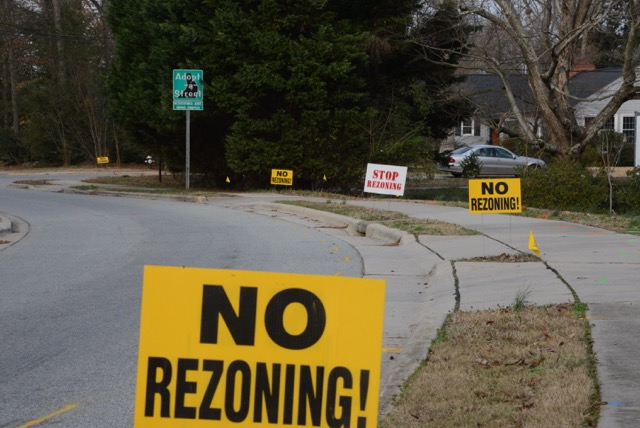It’s an ill wind that blows no one any good, and although a wind can’t get much worse than the coronavirus, it has created a favorable climate for those rezoning property in Greensboro.
The Greensboro City Council had four rezoning requests on the agenda for the July 21 meeting and passed all of them by unanimous votes.
Two of the rezoning requests had speakers in opposition at the virtual meeting.
Two of the requests were for annexation and original city zoning. The current state law restricts cities from annexing property unless the property owner requests it. Greensboro will not extend water and sewer service to a property until that property is annexed. So almost all of the requests for annexation are from property owners who want city water and sewer service and are rarely denied.
The virtual meetings do make it easier for the City Council to rezone property when there is neighborhood opposition. Usually when a neighborhood opposes a rezoning request, a large contingent of neighbors fill the seats in the Council Chamber, most of them don’t speak at the meeting. However, one of the speakers in opposition usually asks everyone opposed to stand.
It is much more difficult for an elected official to look at 50 or 100 people standing in opposition to the rezoning and vote for it then it is to look at a screen with one speaker who says a lot of other people are opposed and vote against that face on a screen.
It’s one of the reasons the Zoning Commission will approve a rezoning request that is later denied by the City Council. The zoning commissioners are appointed and don’t have to be concerned about being reelected.
The City Council will also often approve a rezoning request that the Zoning Commission has denied, as it did on the rezoning request for 2400 N. Elm St. on July 21. As Mayor Nancy Vaughan noted at the meeting, the rezoning request that was unanimously approved by City Council was far different than the one the Zoning Commission unanimously denied.
In the time between the Zoning Commission meeting and the City Council meeting, the developer had hired an attorney, Tom Terrell of Fox Rothschild, and added conditions that dealt with a number of the issues the Zoning Commission raised.


This is a problem, we had a failing septic tank system that was old. Our home was built before city sewer was available but out of 20 homes in our development,17 were connected to city sewer when built, including the homes on both sides of us. The line runs right past our lot and already had a connection point for us to connect. All we needed to do was connect, the city had to do nothing else but approve the connection. When I requested to connect like most of my neighbors, the city refused. The fact that the whole neighborhood was on it already fell on deaf ears. I had to apply for annexation, have the hearings, and wait for the approval. It caused quite a stir in our neighborhood, lots of pictures taken, comments, etc. we are now the only city lot in the neighborhood and the only one within 1-1/2 miles. There is no water line…and they made it abundantly clear that although I was in the city “they do not guarantee city water….only sewer”. So if my well fails I can expect no help from the city, I would have to pay for an extension of the water for about a 1/4 mile across two streets to get it. But if there had been a line I would have been forced to connect….you gotta love these people.
These city council members don’t care about the PEOPLES WANTS that are looking for kick back and it’s dam you the people. OPEN UP YOUR EYES PEOPLE . We need to remove them all. We need people that will listen and not put a section eight property everywhere. Why don’t that put it they live???????????? Because it brings the property values down.
Re-zone me out of the city, please……
Coop squared is a negative number.